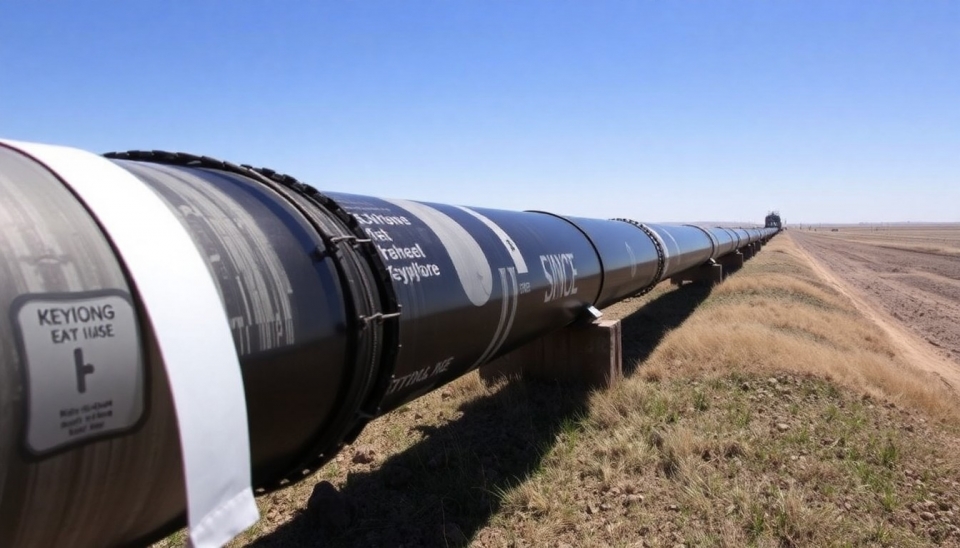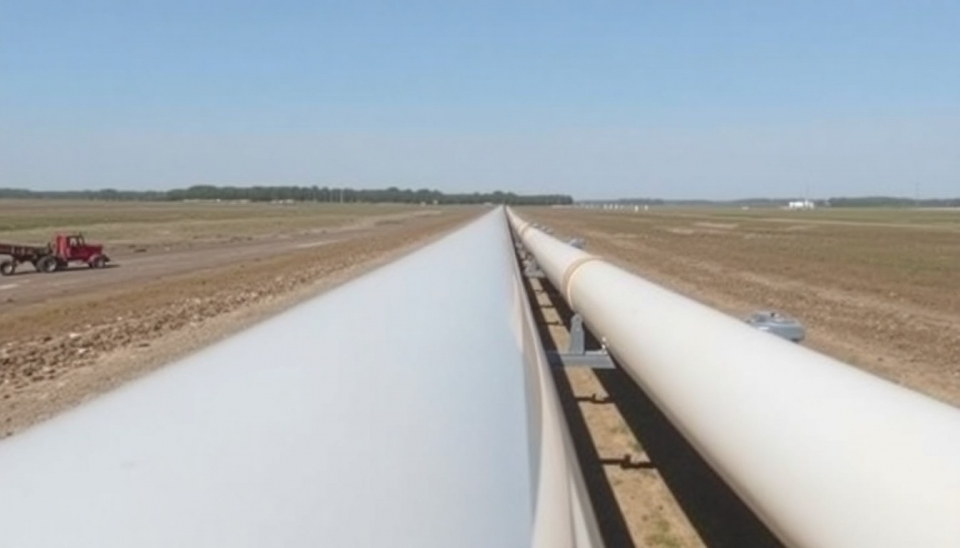
The Keystone oil pipeline has been officially shut down after a significant spill was reported in North Dakota. This incident raises serious concerns about environmental safety and the integrity of one of North America's major oil transport systems.
The pipeline, which is operated by TC Energy, experienced the spill in the northeastern region of North Dakota. Initial reports indicate that a substantial volume of oil leaked from the pipeline, prompting immediate action from local authorities and environmental agencies. Emergency response teams were quickly mobilized to manage the situation and assess the extent of the spill, ensuring that necessary containment measures were in place to minimize environmental impact.
Local officials have reported that the spill occurred near a rural area, and preliminary assessments are ongoing to quantify the extent of the leak and its potential impact on surrounding ecosystems. Fortunately, no injuries or fatalities were reported as a result of the incident, but the spill’s proximity to sensitive habitats has raised alarms among environmental activists and community leaders.
In reaction to the leak, TC Energy has stated that a thorough investigation is underway to determine the cause of the failure. The spokesperson emphasized their commitment to operational safety and environmental protection, noting that they are working in close cooperation with regulatory agencies to manage the spill's aftermath.
The shutdown of the Keystone pipeline, which carries Canadian crude oil through various U.S. states, could have significant ramifications for both oil supply and prices. Industry analysts are watching closely for the potential ripple effects on fuel availability and market stability, particularly in regions that rely heavily on this pipeline for oil supplies.
This shutdown is the latest in a series of challenges facing the Keystone pipeline, which has been under scrutiny since its inception due to environmental and safety concerns. The pipeline has had several incidents over the years, leading to calls from environmentalists for its permanent closure and a transition to cleaner energy sources. The debate over oil transport and environmental responsibility continues to be a contentious issue in North America.
As the situation unfolds, monitoring agencies and environmental groups are expected to increase their scrutiny of existing oil transport infrastructures. This spill not only highlights the risks associated with pipeline operations but also underscores the urgent need for robust safety protocols and emergency response strategies in the oil and gas sector.
In conclusion, the Keystone pipeline incident serves as a reminder of the ongoing challenges in balancing energy production and environmental accountability. Stakeholders from various sectors will need to engage in a thoughtful dialogue about the future of energy transport amid growing environmental concerns and the push for sustainability.
Twitter will be abuzz as the situation develops, with discussions anticipated around pipeline safety, environmental regulations, and the implications for larger energy policies.
#KeystonePipeline #OilSpill #NorthDakota #EnvironmentalSafety #TCEnergy #EnergyTransport #Sustainability #PipelineSafety #OilIndustry
Author: Liam Carter
